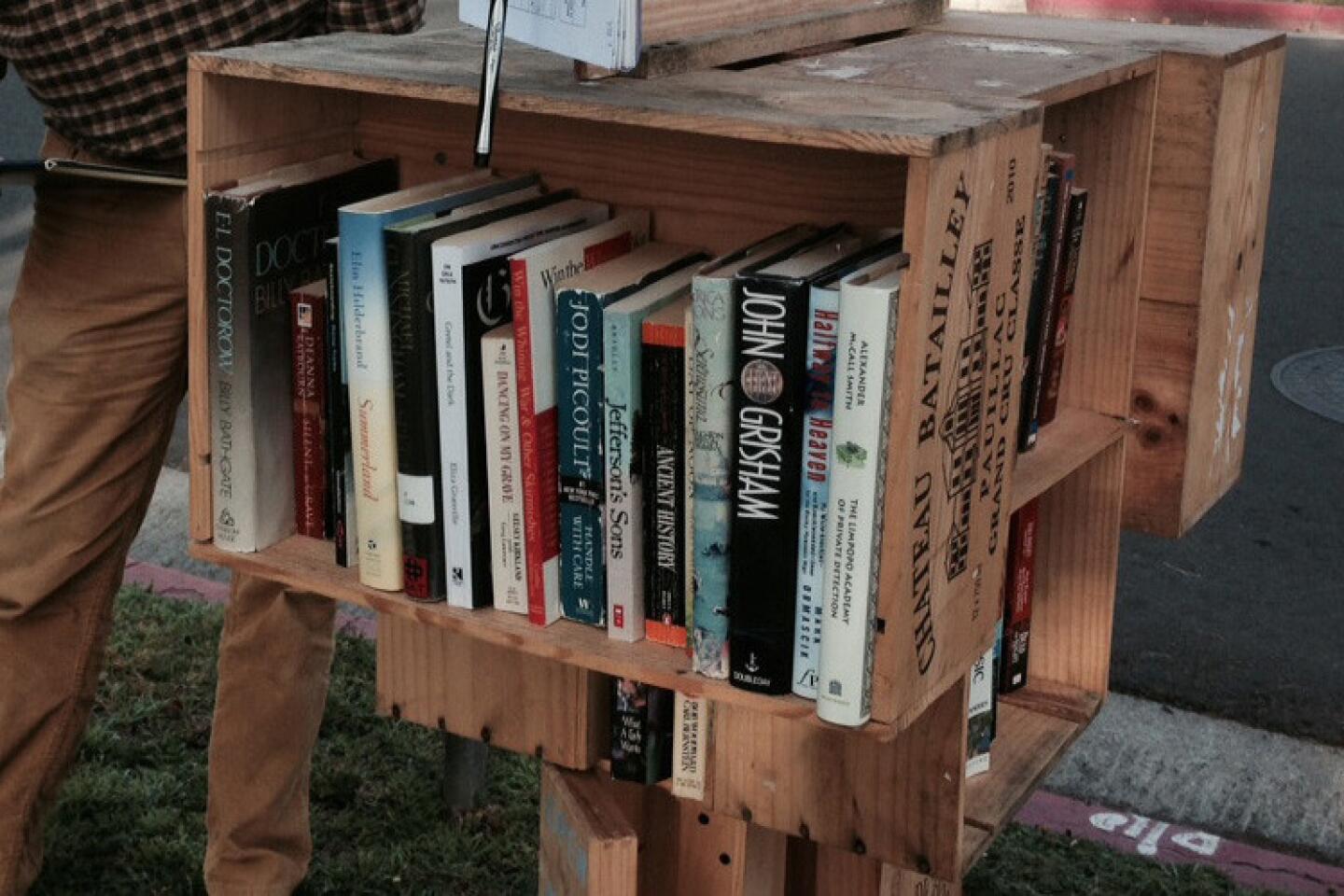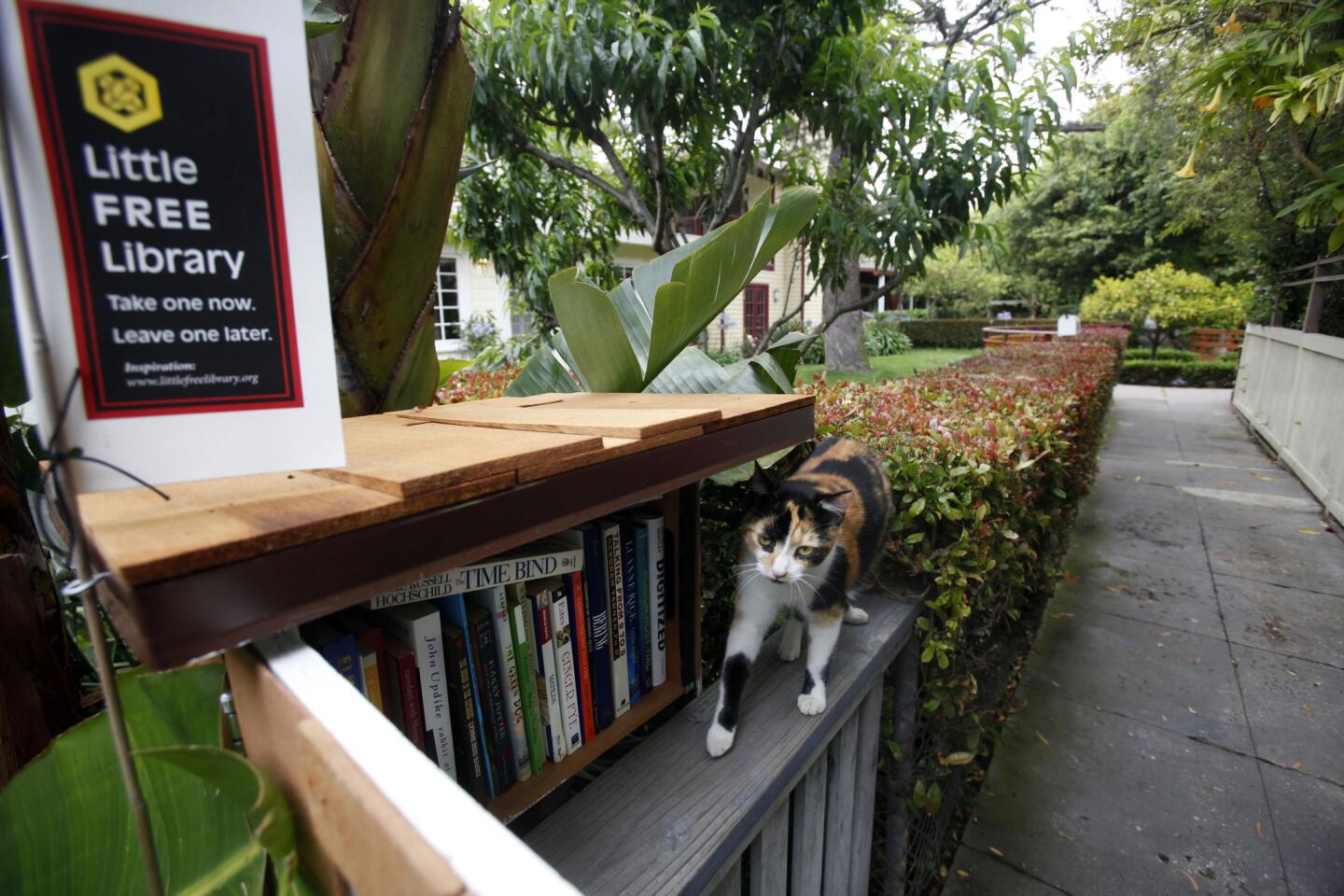Literary democracy in action: ‘The Little Free Library Book’
- Share via
I’m a sucker for a Little Free Library. It is, to me, an almost perfect expression of literary democracy: Take a book, return a book, reading not as commodity exchange but exchange of identity, of ideas.
Not long ago, I visited one in Echo Park, which revealed itself as a kind of mirror to its community -- a few books about parenthood, C.S. Lewis’ Narnia series, “The Woman Warrior” by Maxine Hong Kingston. To look at those titles was like standing in some collective living room, perusing the books on the shelves for clues.
This is one of the things books offer us, a way into each other’s lives, each other’s passions; it is why the bookcase is the first thing I look for when I go to someone’s house. The neighborhood in which I found myself was, clearly, one of families, and it pleased me to imagine these books as a binding mechanism, a source of cohesion, traveling (with their advice and their stories) from family to family, home to home.
As it happens, such libraries are the subject of Margret Aldrich’s “The Little Free Library Book” (Coffee House: 260 pp., $25), a surprisingly nutritious account. I say surprisingly because this is a gift book, written with the cooperation of Todd Bol, the Wisconsin man who brought the Little Free Library phenomenon into being in 2009. The original plan was to develop 2,510 of them -- or one more than the 2,509 public libraries supported by Andrew Carnegie; six years later, there are more than 25,000 Little Free Libraries worldwide.
All of that is in “The Little Free Library Book,” which is both primer and inspiration, a history and a guide for how to get involved. “There are more than eleven thousand small towns across the United States that don’t have a public library,” Bol writes in a brief preface -- which tells us just how necessary these grassroots manifestations of literacy, of community, truly are.
One of the finest aspects of the book are the profiles of library creators, such as the Porter family of Rancho Palos Verdes, or Carolyn Bancroft of Bogota, Colombia. “A Chinese proverb says that a book is like a garden carried in the pocket,” Aldrich writes of Meleah Maynard and Melanie Peterson-Nafziger of the Twin Cities, both of whom have integrated actual gardens into the design of their libraries.
This is the other thing about the libraries -- that they are expressions of creativity in their own right. Again, it has to do with the neighborhood, and our role within it, the interplay. The library I visited in Echo Park had signage in both Spanish and English; among those photographed for the book is one that occupies an old sidewalk newspaper box and another designed to resemble a movie theatre marquee.
In the end, though, it’s really the books that are the draw, with their sense of reading as a shared source of interaction, as a conversation that exists not only writer-to-reader, but reader-to-reader, as well.
“The thing I like about books, in general,” says librarian Nancy Pearl in “The Little Free Library Book,” “is that they connect people, one to another, through a shared reading -- whether they know the connection exists or not.”
Yes, of course, that’s it precisely, which is the heart of the Little Free Library movement, and also of Aldrich’s book.
Twitter: @davidulin
More to Read
Sign up for our Book Club newsletter
Get the latest news, events and more from the Los Angeles Times Book Club, and help us get L.A. reading and talking.
You may occasionally receive promotional content from the Los Angeles Times.










